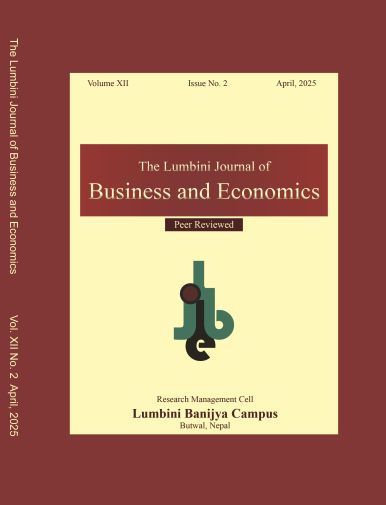Assessment of Tax Planning Practices in Small and Medium Size Organizations: A Study of Baglung
DOI:
https://doi.org/10.3126/ljbe.v12i2.77418Keywords:
Action planning, knowledge and attitude, project planning, strategic planning, tax planningAbstract
Purpose: This study investigates the impact of strategic tax planning, project tax planning, and action tax planning on overall tax planning. Additionally, the research explores the mediating role of knowledge and attitude in the relationship between these tax planning components and the overall tax planning effectiveness.
Methods: A causal research design was adopted to examine the cause-and-effect relationship between independent variables (strategic tax planning, project tax planning, and action tax planning) and the dependent variable (tax planning). It employed a primary data collection method through a well-structured questionnaire.
Results: The results indicate a significant impact of strategic tax planning, project tax planning, and action tax planning on the overall tax planning effectiveness in SMOs in Baglung. Furthermore, the study reveals that knowledge and attitude play a mediating role in the relationship between strategic tax planning, project tax planning, action tax planning, and the success of tax planning initiatives.
Conclusion: These findings contribute to the existing literature by providing insights into the specific tax planning practices that can enhance overall tax planning effectiveness in small and medium-sized organizations.




